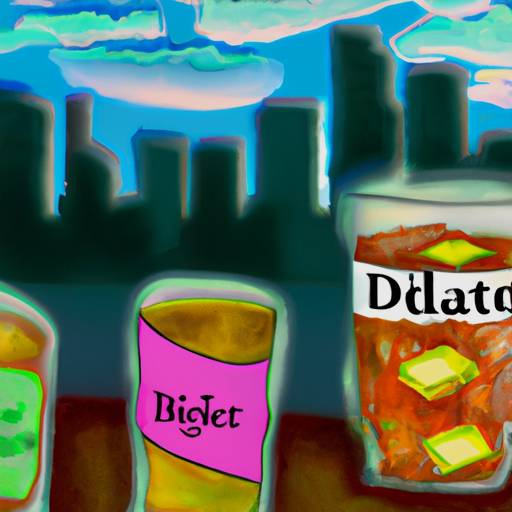-
Reading Roadmap
- Impact of Urban Sugar-Sweetened Beverage Taxes on HbA1c Progression and Diabetes Onset in Prediabetic Adults
- Key Takeaways
- Introduction: The Sweet Problem of Sugar-Sweetened Beverages
- The Impact of SSB Taxes on Consumption
- SSB Taxes and HbA1c Levels
- Factors Influencing the Effectiveness of SSB Taxes
- FAQ Section
- What are sugar-sweetened beverages?
- What is HbA1c?
- How do SSB taxes work?
- What is the impact of SSB taxes on diabetes rates?
- What factors influence the effectiveness of SSB taxes?
- Conclusion: The Potential of SSB Taxes in Diabetes Prevention
- Further Analysis
- Key Takeaways Revisited
Impact of Urban Sugar-Sweetened Beverage Taxes on HbA1c Progression and Diabetes Onset in Prediabetic Adults

[youtubomatic_search]
Key Takeaways
- Sugar-sweetened beverage taxes can potentially reduce the consumption of these drinks, leading to a decrease in HbA1c levels and diabetes onset in prediabetic adults.
- Several cities have implemented such taxes, with varying degrees of success.
- Research indicates a correlation between reduced sugar-sweetened beverage consumption and lower HbA1c levels.
- However, the effectiveness of these taxes is influenced by factors such as public awareness and accessibility to healthier alternatives.
- Further research is needed to fully understand the long-term impacts of these taxes on public health.
Introduction: The Sweet Problem of Sugar-Sweetened Beverages
The consumption of sugar-sweetened beverages (SSBs) has been linked to an increased risk of type 2 diabetes, obesity, and other chronic diseases. As a result, several cities worldwide have implemented taxes on these beverages in an attempt to curb their consumption. This article explores the impact of these taxes on HbA1c progression and the onset of diabetes in prediabetic adults.
The Impact of SSB Taxes on Consumption
Research has shown that SSB taxes can lead to a significant reduction in the consumption of these beverages. For instance, a study conducted in Berkeley, California, found that SSB sales decreased by 9.6% one year after the implementation of a penny-per-ounce tax (Silver et al., 2017). Similarly, in Mexico, a nationwide tax resulted in a 7.6% decrease in SSB purchases two years post-implementation (Colchero et al., 2017).
SSB Taxes and HbA1c Levels
Reduced consumption of SSBs can potentially lead to lower HbA1c levels, a key indicator of long-term blood glucose control. A study published in the Journal of the American Medical Association found that a decrease in SSB consumption was associated with a significant reduction in HbA1c levels (Ebbeling et al., 2012). This suggests that SSB taxes could potentially slow the progression of prediabetes and delay the onset of type 2 diabetes.
Factors Influencing the Effectiveness of SSB Taxes
While SSB taxes have shown promise, their effectiveness is influenced by several factors. Public awareness of the health risks associated with SSB consumption is crucial for these taxes to have a significant impact. Additionally, the availability and affordability of healthier beverage alternatives also play a role. In cities where these factors are not adequately addressed, the impact of SSB taxes on HbA1c levels and diabetes onset may be limited.
FAQ Section
What are sugar-sweetened beverages?
Sugar-sweetened beverages are drinks that contain added sugars, such as sodas, sports drinks, and fruit drinks.
What is HbA1c?
HbA1c is a measure of average blood glucose levels over the past two to three months. It is used to diagnose and monitor diabetes.
How do SSB taxes work?
SSB taxes are typically levied on the volume or sugar content of these beverages. The aim is to increase their price and discourage consumption.
What is the impact of SSB taxes on diabetes rates?
Research suggests that SSB taxes can potentially reduce diabetes rates by decreasing SSB consumption and, in turn, lowering HbA1c levels. However, more research is needed to fully understand their long-term impact.
What factors influence the effectiveness of SSB taxes?
Public awareness of the health risks associated with SSB consumption and the availability of healthier alternatives are key factors influencing the effectiveness of these taxes.
Conclusion: The Potential of SSB Taxes in Diabetes Prevention
SSB taxes represent a promising strategy to reduce the consumption of these beverages and potentially slow the progression of prediabetes and delay the onset of type 2 diabetes. However, their effectiveness is influenced by factors such as public awareness and the availability of healthier alternatives. Further research is needed to fully understand the long-term impacts of these taxes on public health.
[youtubomatic_search]
Further Analysis
While the evidence suggests a positive impact of SSB taxes on HbA1c levels and diabetes onset, it is important to consider the broader context. These taxes are just one piece of the puzzle in the fight against diabetes and other chronic diseases. Comprehensive strategies that include education, access to healthcare, and promotion of healthier lifestyles are also crucial.
Key Takeaways Revisited
- Sugar-sweetened beverage taxes can potentially reduce the consumption of these drinks, leading to a decrease in HbA1c levels and diabetes onset in prediabetic adults.
- Several cities have implemented such taxes, with varying degrees of success.
- Research indicates a correlation between reduced sugar-sweetened beverage consumption and lower HbA1c levels.
- However, the effectiveness of these taxes is influenced by factors such as public awareness and accessibility to healthier alternatives.
- Further research is needed to fully understand the long-term impacts of these taxes on public health.







